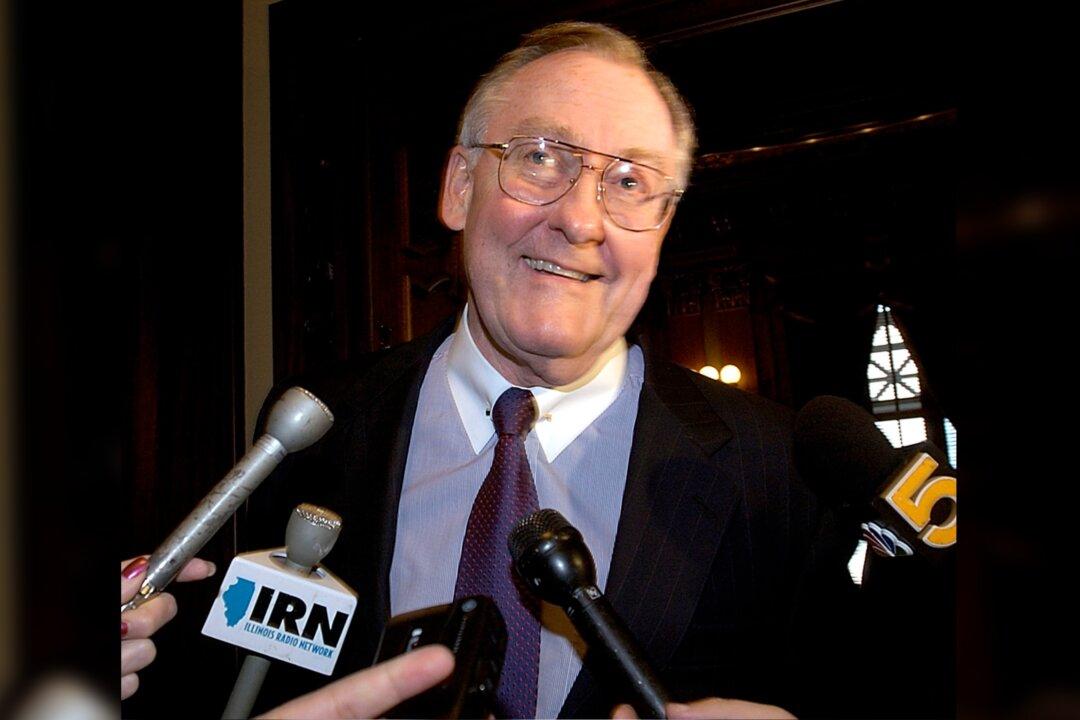CHICAGO—Former Illinois Gov. James R. Thompson, known as “Big Jim” during a long career that eventually made him the state’s longest-serving chief executive, has died. He was 84.
Thompson died shortly after 8 p.m. Friday at the Shirley Ryan AbilityLab in Chicago, his wife, Jayne, told the Chicago Tribune and the Chicago Sun-Times. The Tribune, citing a police report, reported Thompson had been recovering there for several weeks after suffering heart problems.





